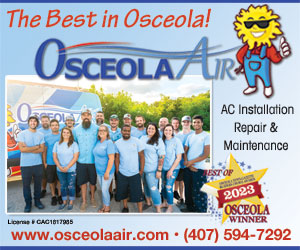Did you know an estimated 6.5 million Americans aged 65 and older are living with Alzheimer’s disease? According to the Alzheimer’s Association, statistics from 2022 show 73% of Alzheimer’s patients are 75 or older, with nearly two-thirds being women.
The Public Reference Bureau (PRB), a group of global health experts who work on policy and programming development, estimates more than seven million people ages 65 or older had dementia in 2020. PRB also reports that if current demographics and health trends continue, more than nine million Americans could have dementia by 2030, and nearly 12 million by 2040. Nevertheless, the statistics are detrimentally staggering, and as with most clinical data, numbers do in fact increase over time.
Although Alzheimer’s and dementia are often used interchangeably, they are not the same thing. According to the Mayo Clinic, dementia is general term, whereas Alzheimer’s is considered a specific type of dementia. Normally, Alzheimer’s is marked by symptoms of dementia which gradually worsen over time. Alzheimer’s disease first affects the part of the brain associated with learning, so early symptoms often include changes in memory, thinking and reasoning skills.
Weekly, I hear family, friends, and even colleagues joke about potentially having the early signs of dementia due to forgetful behavior. Obviously, it’s not a joking matter, but it seems we have all wondered from time to time if we are in the preliminary stages of cognitive forgetfulness. Though in my case, forgetful behavior is simply having a lot on my plate (as we all do), but on occasion, I am sure I am like most, I wonder!
According to the National Institutes of Health (NIH), scientists continue to conduct studies to try to prevent or delay dementia caused by Alzheimer’s disease. Though researchers have identified promising strategies, a recent review heavily suggests three types of actions to support brain health: increased physical activity, blood pressure control and cognitive training (which is structured activities designed to enhance memory, reasoning, and speed of processing).
For more information on this recent study, go to https://www.nia.nih. gov/ health/ preventingalzheimers- disease-whatdo- we-know.
The Osceola Council on Aging (OCOA) has many clients under the care of doctors for both Alzheimer’s and dementia. While this is unfortunate, we offer services which can help support their needs, including:
Adult Day Health Care: Seniors in our Adult Daycare are under the eyes of medical staff, trained in Alzheimer’s and dementia specific caregiving. Licensed Professional Staff can administer medications, insulin and even breathing treatments as needed for daily living and activities.
Home Care: Families can receive respite care for family members under the medical care of Alzheimer’s and dementia. Services provided can include:
Personal Care – assistance with bathing, dressing, transferring, feeding and toileting to maintain personal hygiene.
Homemaking – assistance with light housekeeping, laundry, meal preparation and shopping assistant.
Companion – conversation and encouragement for isolated seniors; assistance with reading, writing letters, activities which stimulate the mind, running needed errands and even grocery shopping.
Respite Care– provides caregiver relief from the stress and demand associated with the daily care of a frail or disabled adult. As Alzheimer’s progresses, connections between networks of neurons breakdown, and various brain regions begin to shrink. According to NIH, by the final stages of the disease, the brain is normally atrophied, leading to significant loss of brain volume causing a person to gradually lose their ability to live and function independently. Sadly, this disease is fatal, but even while watching our clients sorrowfully struggle with this disease, I am content knowing the OCOA is doing our part to support and manage residents who have been afflicted by the diagnosis.
For more information on these services in which OCOA offers, call 407483-1494, or go to https://osceolagenerations.org/ services/adult-day-healthcare/.




